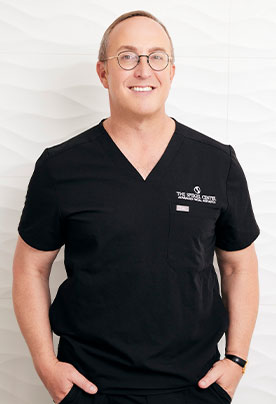
News sources say that now more than ever, men are using testosterone for anti-aging. According to JAMA, the Journal of the American Medical Association, testosterone prescriptions have increased substantially in the last 10 years. Commonly known as testosterone replacement therapy (TRT), it seems the primary reasons for increased use of testosterone for anti-aging involve better health and increased energy. As this trend increases, physicians urge caution.
Andropause vs. Menopause
Produced primarily in men’s testicles, testosterone is a male-dominated hormone linked to several physical benefits. These benefits include maintaining muscle mass and strength, bone density, fat mass, libido, and red blood cell production. It is a male-dominated hormone because while women also produce testosterone, they produce a relatively small amount compared to guys. Think of it ‘as estrogen is to women, testosterone is to men’. That is, just as women see physical changes as a result of the estrogen hormone loss through aging (menopause), men may see physical changes as a result of testosterone hormone loss due to aging (andropause).
Testosterone Loss
Testosterone levels do lower with age. Some studies describe the age-related loss as beginning after age 30 at a decrease of 1% per year. Other studies state the hormone loss begins after age 40 at a rate of 0.3% per year. As testosterone levels decrease during aging, men may experience increased body fat, lower red blood cell production, a loss of muscle mass and strength as well as a decreased libido or sex drive. These symptoms may also occur when low testosterone occurs as the result of a medical condition that is not linked to aging known as hypogonadism.
Testosterone Replacement Therapy
As women continue to face the issues of hormone replacement therapy (HRT), men now face the question of testosterone replacement therapy (TRT). With the aging Boomer population, prescriptions are rising as men use testosterone for anti-aging. TRT does seem to benefit men with low testosterone levels as a result of hypogonadism. However, the benefits of TRT in the age battle are not as clear even though men feel better when the therapy results in weight loss, increased muscle mass, decreased body fat and an increase in sex drive which are all signs of a better aging process.
Use Caution with TRT
Many physicians now discourage women from using HRT as a defense of aging because of the long term adverse effects. For the same reason, physicians urge caution when considering the use of testosterone for anti-aging. Relatively few studies have examined the long term effects of TRT in aging men that are otherwise healthy. The concern is that while TRT may provide some short term benefit in fat reduction and an improved sex drive, it may also facilitate long term chronic conditions including sleep apnea, prostate cancer and cardiovascular disease.
There is no doubt that as men age, they want to feel and look their best which explains the increased drive to use testosterone for anti-aging. However, men must ensure that the short term benefits of TRT do not cause long term adverse effects such as cardiovascular disease. It is highly recommended that, as men consider the use of testosterone for anti-aging, they speak with their physician to determine if they should pursue testosterone replacement therapy.
Above image source: Flickr/Mike Baird





